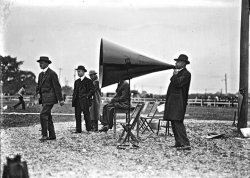I agree none is perfect, but I'm not thinking about it from an audiophile standpoint (whole different set of criteria) .. I'm thinking of it from a "professional" standpoint. I guarantee someone or ones are noticing it .. might not say something, but since many see other presentations (either at church, or on stage or at work) .. they compare mentally.You are thinking about it from the perspective of an audio phile. Nobody at a wedding ceremony is that.
List of their concerns:
1. Can the officiant be heard?
2. Was there any bad/embarrassing feedback issues?
3. Was there signal drop outs?
- If there were any signal drop outs, was there just 1 quick one, or multiple ones, or was half the ceremony literally not picked up?
No MIC system is perfect. A very expensive mic system will surely minimize those issues, but is it worth the investment for a DJ? Some say yes, Some say no.
Am I the only one who tries to better things EVERY time?




